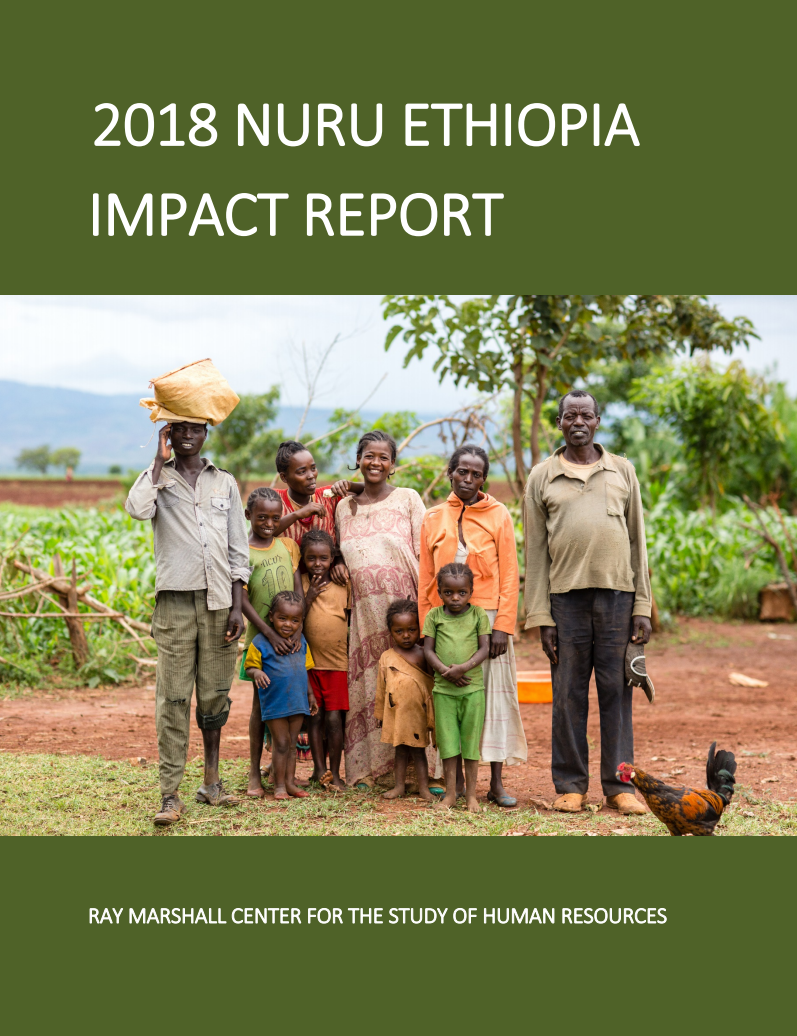
Since 2016, the Ray Marshall Center has been providing technical assistance to support Nuru International's monitoring and evaluation (M&E) team. The Center's experience and expertise supports Nuru's work in Kenya, Ethiopia and Nigeria by demonstrating the effectiveness and robustness of its integrated approach to addressing poverty. The integrated Nuru model seeks to address four key areas of need: 1) food insecurity, 2) inability to cope with economic shocks, 3) unnecessary disease and death and 4) lack of quality education for children.
- 2018 Nuru Ethiopia Impact Report
Principal Author: Ray Marshall Center
Co-Author: Nuru International
Date: August 2019
Publication Type: Report, 43 pp.
This report is commissioned by Nuru International
In Ethiopia and Kenya, Nuru M&E utilizes a quasi-experimental design with the intent of measuring the effectiveness of the four impact programs as well as the overarching impact of these programs on multidimensional poverty. By following a panel of farmers from a nonintervention group as well as the same cohort of Nuru households over time, Nuru M&E evaluates whether or not any observed changes in well-being can be attributed to Nuru programming. Additionally, M&E analyzes key performance indicators to ensure programs track toward their goals.
- Learn more about the Ray Marshall Center (RMC) for the Study of Human resources
- RMC projects
- RMC publications
- Ray Marshall Center News
Since 2017, RMC researchers have been responsible for carrying out data analyses for the Nuru M&E team and studying the outcomes and impacts of Nuru's programming in Ethiopia. Findings from the analyses are used by the Nuru M&E team to inform program planning and decision making. In this report, RMC researchers present results from an outcomes and impact analysis of Nuru's rural livelihoods, health and education programs in Ethiopia in 2018.

